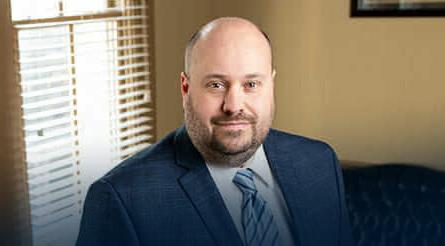Trusts – Questions and Answers
Creating an estate plan is one of the best ways to plan for your future and protect your assets. And a trust or several trusts can be a significant aspect of your plan. Trusts and an estate plan can reduce your tax liability, shield your assets from creditors and/or lawsuits, and help your family avoid a lengthy probate process.
A trust is a financial arrangement that you (the grantor) create allowing a third party (the trustee) to manage and spend assets to benefit a person, group of people, charity, or charitable cause (the beneficiary or beneficiaries). Trusts can be set up in any number of ways and can specify exactly how and when you want the assets (or income from the assets) to pass to the beneficiaries. Sometimes, such as with revokable trusts, the grantor serves as trustee during their lifetime.
Trusts aren’t just for the wealthy – they are for anyone who wants their assets to be protected while they’re alive and distributed according to plan after death. Trusts can be simple or complex, overarching or highly specific and specialized. A skilled and experienced estate planning attorney can assess your unique situation and recommend a trust(s) that will be of greatest benefit for you and your family.
Choosing the Best Indiana Trust Lawyer
Every trust attorney is not created equal.
Creating an effective trust is a highly specialized skill that attorneys trained in estate planning spend years developing. At Church Langdon Lopp Banet Law, our attorneys have decades of personal and professional experience in the estate planning arena, and we are familiar with multiple ways to protect assets, plan for retirement, and prepare for end-of-life issues. Our attorneys are among the best and the brightest. Not only are they smart, but they also live in the New Albany community and care about residents here. They are deeply committed to the well-being of the clients they serve. To learn more about our legal team, you can read our attorney bios. You can also read client testimonials to see what our satisfied clients have to say about our legal services.
Benefits of a Trust
You control your wealth.
Trusts can be created now, and beneficiaries receive income during your lifetime. Trusts can also be created on paper but not funded until after you pass away. Assets from your estate can be the basis of the trust, such as real estate, stocks, cash, and other investments. Trusts offer some benefits beyond transferring assets through the probate process. These benefits include:
- You direct when and to whom distributions may be made.
- You can specify that you will get access to assets during your lifetime and designate who is entitled to remaining assets after your death.
- Trusts normally avoid probate, so your beneficiaries may gain access to these assets faster and without court fees.
- Your will becomes a public record during the probate process, but a trust does not. If you value your privacy, a trust could prevent others from knowing who got how much after you pass away.
- Depending on how it’s established, a trust may not be considered part of the taxable estate, so fewer taxes may be due upon your death.
Different Types of Trusts
Our trust attorney in New Albany, IN explains the differences.
The purpose of a trust is to protect assets and provide an orderly way to distribute your assets after you pass away. There are many kinds of trusts that can be set up to limit tax exposure, fund charities and provide support to family members, but they generally fall into two categories:
- Revocable or living trust: This trust allows you to modify or end the trust during your lifetime. It can help transfer assets to beneficiaries outside of probate after your death, and it allows you to retain control of the assets during your life. The trust can be dissolved at any time if your circumstances or desires change. These trusts often become irrevocable (see below) when the grantor dies. You can be the trustee (or co-trustee with another person), maintain control over the trust and make provisions for a successor trustee if you become incapacitated or die. The drawback is that a living trust can be subject to estate taxes and will be treated as one of your assets during your lifetime.
- Irrevocable trust: This type of trust can’t be changed by the grantor after it’s created. While this loss of control is a negative factor, the benefits are that it generally transfers your assets out of your estate and potentially out of the reach of estate taxes and probate. If your goal is to reduce your estate tax liability, this is an option you should consider. It may also shelter your assets from legal judgments against you and can be part of Medicaid planning.
Beyond revocable and irrevocable trusts, there are specialty trusts designed to address specific entities or items. Here are just a few:
- Pet trust: These trusts fund and provide for animals – such as cats, dogs, horses and other pets – after you pass away.
- Gun trust: These trusts oversee the transfer of firearms to beneficiaries and make sure that all state and federal gun laws are adhered to.
- Special needs trust: These trusts are set up to provide for a disabled child or adult after you pass away. Instead of providing assets to those who may not be able to manage money well, the trustee can manage the money and distribute assets or income to pay bills and meet certain expenses.
- Charitable trust: These trusts are established to benefit a particular charitable cause, such as medical research, community foundations, or education, among others. A “charitable remainder trust” allows the grantor to enjoy the benefits of the trust during their lifetime with the remaining proceeds provided to charity upon death.
- Tax by-pass trust: These trusts allow one spouse to pass money to the other spouse while limiting the amount of federal estate taxes due when the second spouse passes away.
More about Indiana trust law, trust code, and Indiana trust requirements
You can read more about Indiana rules governing the rights, duties, powers, liabilities, and remedies of the parties to a trust at Indiana Code Title 30. Trusts and Fiduciaries § 30-4-2-1.
You can also read more here.
What Is a Trustee?
An Indiana attorney for trust accounts explains.
Trust lawyers recognize that their role is not only to research and draft legal documents, but also to help educate their clients about various legal tools and legal terminology. In this case, let’s take a look at the definition of a “trustee.” The trustee is the person assigned to manage the trust assets and distribute them — or income from them — according to the terms of the trust and applicable laws. The trustee is considered a fiduciary so must live up to high legal and professional standards. Some of these requirements include:
- Fully following instructions in the trust
- Not treating trust assets or income as his or her own
- Communicating clearly and transparently to all beneficiaries
- Maintaining records to establish that trust assets are properly managed and spent, and releasing this information to beneficiaries when requested
- Paying federal and state taxes as required
A trustee who mismanages or misuses trust funds can be sued by beneficiaries who have reason to believe the trustee isn’t living up to his or her fiduciary obligations. There is an entire area of the law dedicated to estate and/or trust litigation. Beneficiaries can sue to have a trustee removed if the trustee fails to carry out their fiduciary duty. On the other hand, it is extremely rare, if ever, that a trustee would remove a beneficiary.
A Word About Probate and Small Estates
Probate is the process a person’s estate goes through when they die. It can be either simple and cost-effective, or it can be complicated, drawn out, and expensive — depending on how well you plan. At its best, probate is a well-ordered, efficient, and relatively easy process that is over within a short period. At its worst, it can be expensive, slow, and often frustrating. The first thing you can do to ensure that the probate process is smooth is to create a will as part of a larger estate plan. A last will and testament will lay out how you want your assets distributed to beneficiaries. Without a will, a person is said to have died “intestate.” When this happens, Indiana Probate Code and a probate court will determine how your assets are distributed, which may or may not reflect your wishes. So, work with an estate planning attorney to draft a will.
In addition, creating a trust will enable you to manage and protect your assets while you’re alive, and distribute assets efficiently to beneficiaries after you pass away. Generally, trusts do not have to go through the probate process. Other ways you can shield assets from going through probate include:
- ensure that all retirement and life insurance policies have named beneficiaries
- confirm that pensions, IRAs, bank accounts, and other financial accounts have named beneficiaries and/or payable-on-death status.
Many states, including Indiana, have a special, simplified process for what are considered “small estates.” An Indiana small estate is an estate that has a value of $50,000 or less after debts, encumbrances, liens, and funeral and burial expenses are deducted. Joint assets (co-owned with a spouse or another person) and beneficiary designations (such as those mentioned above) are not included in the $50,000 maximum estate amount to qualify for the “small estate” process. If yours qualifies as a small estate, you can pursue a simplified, abbreviated probate process in Indiana.
Talk to Our Skilled and Experienced Indiana Trust Attorneys Today
Whether you’re in Indiana or Kentucky and planning for your own future or the future of a loved one, consider allowing Church Langdon Lopp Banet Law to help you. Our Louisville estate planning attorneys and Jeffersonville estate planning laywers as well as New Albany, Corydon and Clarksonville elder law attorneys can answer your questions about trusts or create them to meet your wants and needs. Contact us today to start finding solutions: complete our online form or call us at 812-725-8224.
Attorney Gary Banet
 Gary is licensed to practice law in both Indiana and Kentucky. He concentrates his practice in estate planning, estate and trust administration, estate and trust litigation, guardianships, elder law and special-needs planning. Gary earned his J.D. from the University of Louisville, Louis D. Brandeis School of Law, and formerly practiced law at Bingham Greenebaum Doll and Wyatt, Tarrant & Combs. [ Attorney Bio ]
Gary is licensed to practice law in both Indiana and Kentucky. He concentrates his practice in estate planning, estate and trust administration, estate and trust litigation, guardianships, elder law and special-needs planning. Gary earned his J.D. from the University of Louisville, Louis D. Brandeis School of Law, and formerly practiced law at Bingham Greenebaum Doll and Wyatt, Tarrant & Combs. [ Attorney Bio ]







